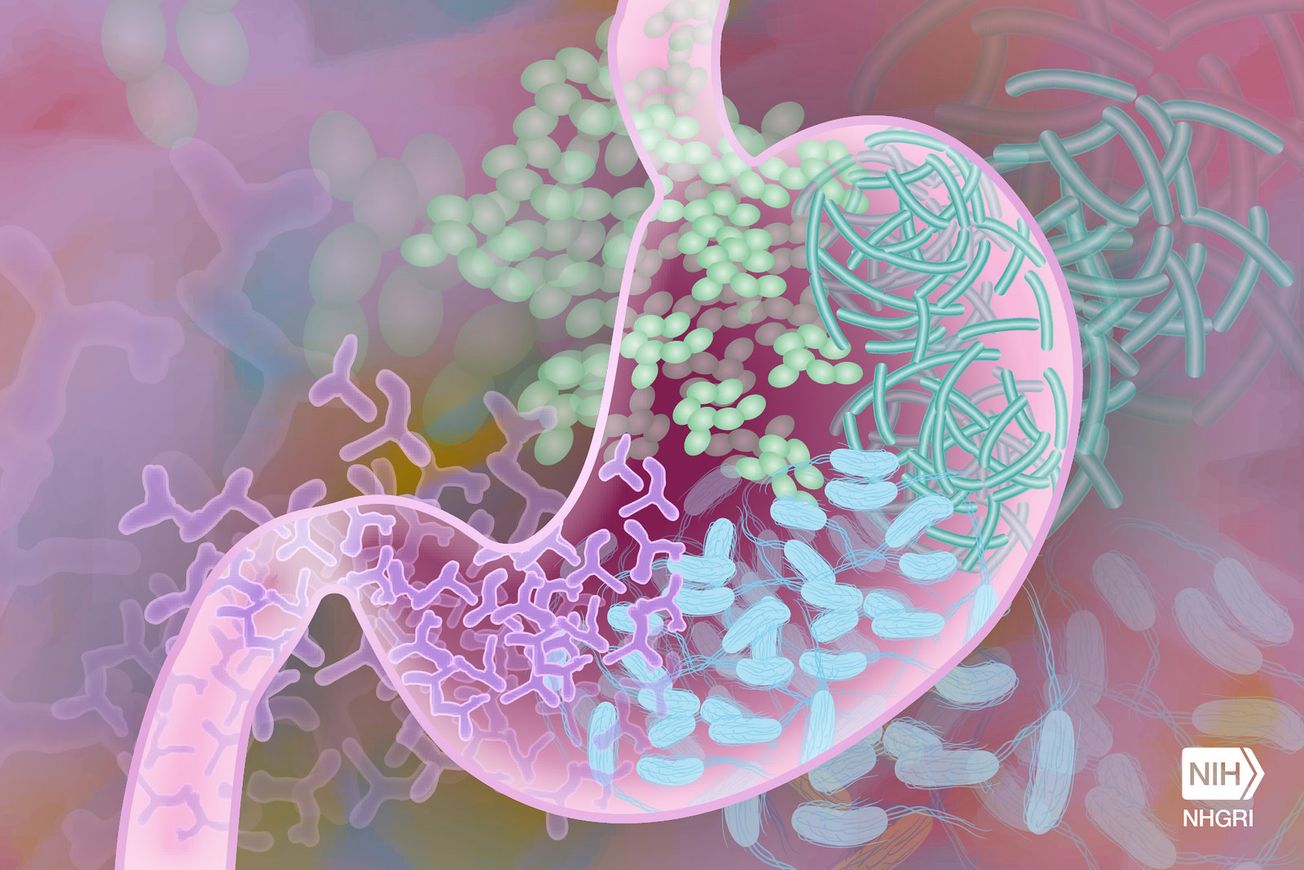By Vilhelmiina Haavisto, Third year, Biology
A new study led by researchers at the University of Bristol suggests that changes in DNA sequences could predict the presence and abundance of certain bacteria that make their home in the gut.
The international study, which was published earlier this week in Nature Microbiology, discovered multiple associations between specific changes in DNA sequences and the abundances of particular groups of bacteria in the gut.
Prior to this study, the only such association that has been consistently observed is that between a functioning copy of a gene that helps us to digest lactose, the main sugar in dairy products, and the abundance of a group of bacteria called Bifidobacterium which feed on lactose in the gut.
However, this new research uncovered 13 significant associations, two of which were consistently observed within the study data. One of these was between the bacteria Ruminococcus and a DNA mutation located between genes, one of which is involved in regulating how the gut carries out digestion, nutrient absorption and waste removal.
Did you know certain human genes relate to bacteria in our #gut? That’s what fascinating new research by Dr David Hughes, @nic_timpson, & @Caketin_Wade has found and it could be a game changer for beating diseases like #obesity, #IBS, and #Alzheimer’s: https://t.co/dbH2mwkflK pic.twitter.com/DEJ3Pw9yzA
— Bristol University 🎓 (@BristolUni) June 23, 2020
Dr David Hughes, Senior Research Associate in Applied Genetic Epidemiology and the study’s lead author, said that the findings ‘represent a significant breakthrough in understanding how genetic variation affects gut bacteria’. ‘Moreover,’ he added, ‘it marks major progress in our ability to know whether changes in our gut bacteria actually cause, or are a consequence of, human disease’.
The human body is full of microbial ecosystems – our skin, mouth, and gut, to name a few – which all harbour distinct groups of bacteria, or microbiomes, that fulfil different roles.
In the gut, bacteria help us digest our food and produce essential molecules, such as vitamin K and biotin, which we cannot produce ourselves. Due to these known intimate associations, it is very likely that our gut microbiome is somehow implicated in human health and disease.
Dr Kaitlin Wade, Lecturer in Epidemiology at the University of Bristol and a co-author of the study, explained that ‘a strength [of the study] is that these findings provide a groundwork for causal analyses to determine, for instance, whether the presence of specific bacteria increases the risk of a disease or is a manifestation of it’.
Dr Wade described the implications of the findings as ‘far-reaching and potentially game-changing’ for our ‘understanding of human health and our approach to medicine’.
The Bristol researchers collaborated with KU Leuven in Belgium and Christian-Albrecht University of Kiel in Germany, and made use of three sets of data; the Flemish Gut Flora Project from Belgium, as well as PopGen and Food Chain Plus from Germany.
'[This study] marks major progress in our ability to know whether changes in our gut bacteria actually cause, or are a consequence of, human disease’
The teams scanned DNA variants – or single nucleotide polymorphisms (SNPs) – and analysed faecal samples of over 3,800 individuals to quantify the abundance of hundreds of gut bacteria. ‘It was exciting to identify new and robust signals across the three study populations,’ said Dr Hughes, ‘which makes the correlation of genetic variation and gut bacteria much more striking and compelling.’
The researchers were also able to find overlap between their results and those from similar work, known as human host-microbiome genome-wide association studies, or mGWAS. Both overlaps were related to lactose digestion and Bifidobacterium, but only one had ever been replicated before.
1/6) Delighted to say that our study on genomewide association study of human gut microbiome variation is out today @NatureMicrobiol! Great congrats to #davidhughes @RaesLab @Caketin_Wade @rbacigalupe @mruehlemann https://t.co/OqbFm5Gb2T pic.twitter.com/3kE3g4oph1
— Nicholas Timpson (@nic_timpson) June 22, 2020
The authors urge caution in the interpretation of their findings, as clear, microbiome-driven effects on health are not always easily proven. Moreover, these associations have only been demonstrated in European populations thus far, as the datasets used, like most GWAS data, mostly comprise of individuals with white European ancestry.
‘Now comes the great challenge of confirming our observations with other studies and dissecting how exactly these DNA changes might impact bacterial composition”, explained Dr Hughes.
Featured image: Flickr / National Human Genome Research Institute
Want to write about your research? Get in touch!









